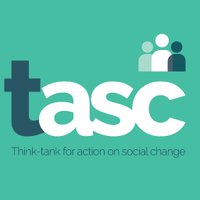

From 2016 – 2021, Carnegie UK led a multi-faceted programme of research, engagement and policy development on the topic of Good Work. This programme sought to understand the key determinants and identify the policy and structural changes required to make good quality work available to more people across the UK and Ireland, improving the wellbeing of individual workers, local communities and society.
Project summary
Carnegie UK worked in partnership with the RSA to convene a Short-Life Group on Measuring Job Quality in September 2017. This was in direct response both to the recommendation of Matthew Taylor’s Modern Employment Review (July 2017) that a new set of job quality metrics should be developed for the UK and the ambition of the then UK Government’s Good Work Plan. The group brought together experts from across sectors, representing a range of different perspectives – employers, employee representatives, public bodies, academics, think-tanks and statisticians – to identify key priorities for a new national set of job quality measures. The work of the group concluded in 2018 producing a conceptual framework for ‘good work’ based on seven headline dimensions and 18 job metrics.
This initial activity led to Carnegie UK working with TASC in Ireland in 2019 to coordinate a response to the then Irish Government’s Future Jobs Strategy. This work took the form of a collection of essays from 15 social partners and organisations in Ireland including business representatives, academics, the trade union movement and wider civil society. These essays described the challenges faced by workers in different sectors and from different backgrounds across Ireland, with a focus on what good quality future jobs should look like and outlined what policies and practical changes were needed to achieve this.
During the Covid-19 pandemic, Carnegie UK undertook research to understand how to ensure the best possible jobs recovery and achieve good work for all as society sought to adapt and, in time, recover from the pandemic. This research put forward over 30 recommendations for how actors in the labour market could seek to balance sustaining employment and improving job quality, to ensure work improves wellbeing for as many people as possible.
In 2021 we concluded this programme of work with the publication a joint report with the Learning and Work Institute on The Future of the Minimum Wage. This report explored the impact of a higher minimum wage on workers, employers and the economy. It assessed the impact of the minimum wage on in-work poverty, and considered how a higher minimum wage might interact with other aspects of job quality, such as progression and terms and conditions of employment. The report set out proposals for the future path of the minimum wage, and for how an increased minimum wage can be delivered as part of a wider labour market strategy that promotes good work, wellbeing and tackles in-work poverty.
Partners
Make an enquiry
"*" indicates required fields
Help us make the case for wellbeing policy
Keep in touch with Carnegie UK’s research and activities. Learn more about ways to get involved with our work.
"*" indicates required fields



